
Wildfowling today is a sport. We get up long before the crack of dawn, head out to the marshes and endure wind, cold and salt mud for the sheer thrill of outwitting a wild and supremely wary quarry. With luck and skill in equal proportions, we bring something back for the table.
But it has not always been so. For generations there were those who lived close to those prime estuaries and marshes into which tens of thousands of migratory duck and geese descended in the winter, who made a living from harvesting birds with powder and shot and selling them for hard cash. These were the market gunners, men who occupied their summers with longshore fishing, oyster dredging, eel catching or farm work, but who in the winter shot duck for a living, sometimes killing thousands of birds a year and despatching them to London’s Leadenhall market.
Fierce competition
From the time that serviceable shotguns became widely available at the beginning of the 19th century, it was natural for the marshman or longshoreman to seek to exploit the natural resource that arrived in autumn on his doorstep. In the mid-1800s there were many fowlers among the close-knit communities down Britain’s east and south coast estuaries — and in a few inshore wetlands too — who scraped a meagre living by supplying birds to local households and traders as and when a good bag was made. It was hard work and the competition among fowlers when the birds were ‘in’ was fierce.
Fowling for the market was no different from commercial fishing and while the harvest was modest and the birds continued to arrive in huge numbers, the impact was small.
This story is from the {{IssueName}} edition of {{MagazineName}}.
Start your 7-day Magzter GOLD free trial to access thousands of curated premium stories, and 9,000+ magazines and newspapers.
Already a subscriber ? Sign In
This story is from the {{IssueName}} edition of {{MagazineName}}.
Start your 7-day Magzter GOLD free trial to access thousands of curated premium stories, and 9,000+ magazines and newspapers.
Already a subscriber? Sign In
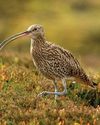
United we stand
Following United Utilities' decision to end grouse shooting on its land, Lindsay Waddell asks what will happen if we ignore our vital moors
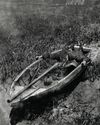
Serious matters
An old gamebook prompts a contemplation on punt-gunning
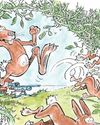
They're not always as easy as they seem
While coneys of the furry variety don't pose a problem for Blue Zulu, he's left frustrated once again by bolting bunnies of the clay sort
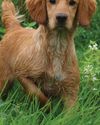
Debutant gundogs
There's lots to think about when it comes to making the decision about when to introduce your dog to shooting

When the going gets rough
Al Gabriel returns to the West London Shooting School to brush up on his rough shooting technique

The Field Guide To British Deer - BDS 60th Anniversary Edition
In this excerpt from the 60th anniversary edition of the BDS's Field Guide To British Deer, Charles Smith-Jones considers the noise they make
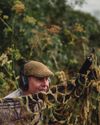
A step too far?
Simon Garnham wonders whether a new dog, a new gun and two different fields in need of protection might have been asking too much for one afternoon's work
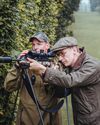
Two bucks before breakfast
A journey from old South London to rural Hertfordshire to stalk muntjac suggests that the two aren't as far detached as they might seem
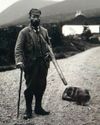
Stalking Diary
Stalkers can be a sentimental bunch, and they often carry a huge attachment to their hill

Gamekeeper
Alan Edwards believes unique, private experiences can help keepers become more competent and passionate custodians of the countryside